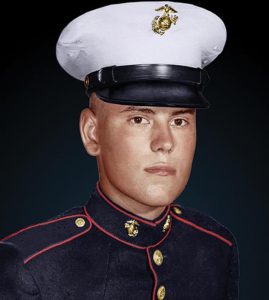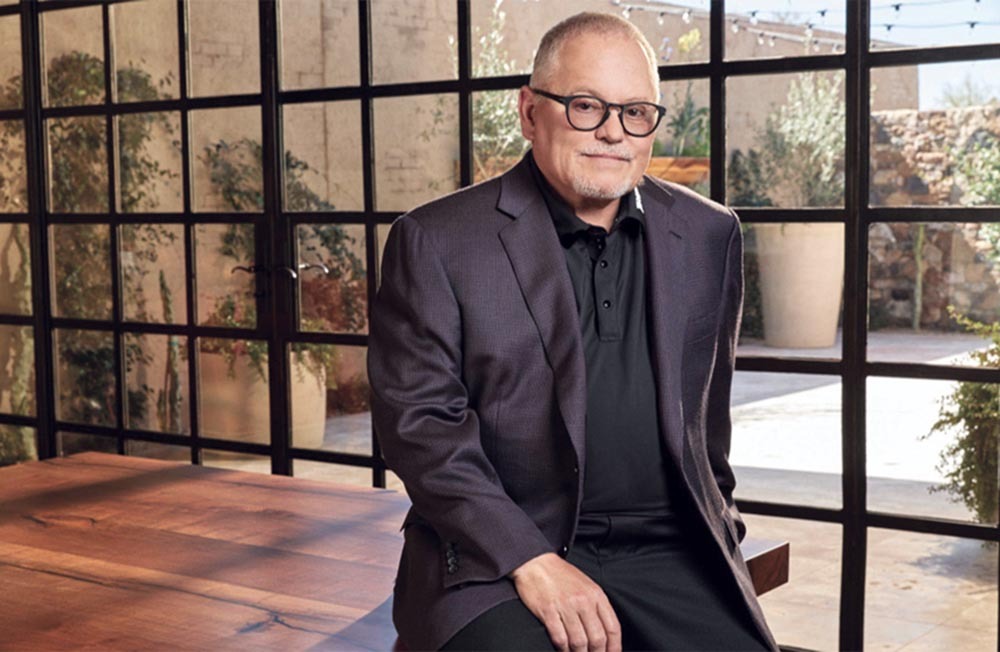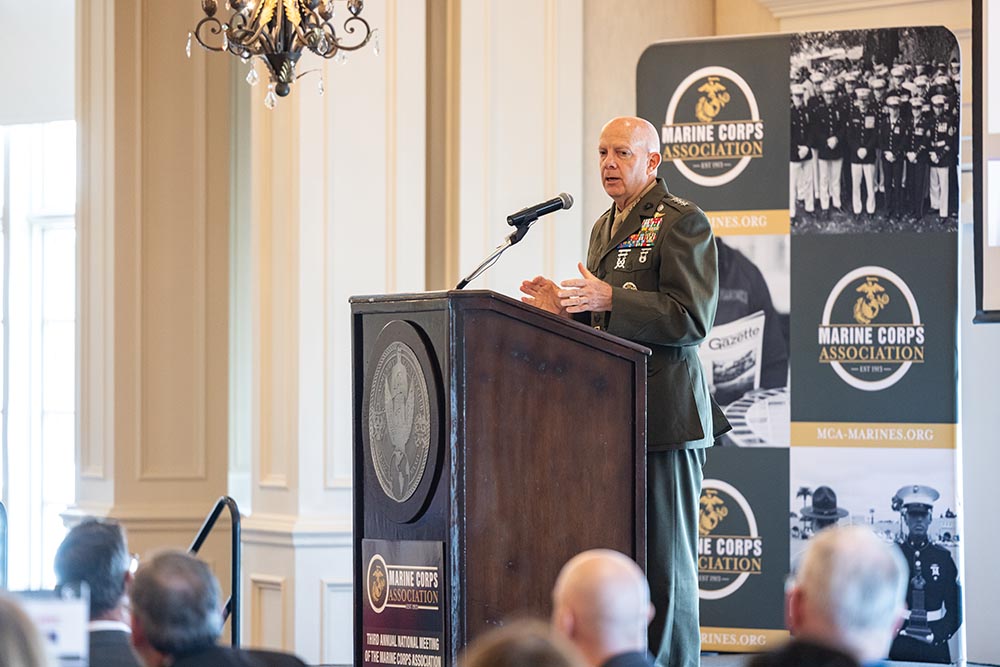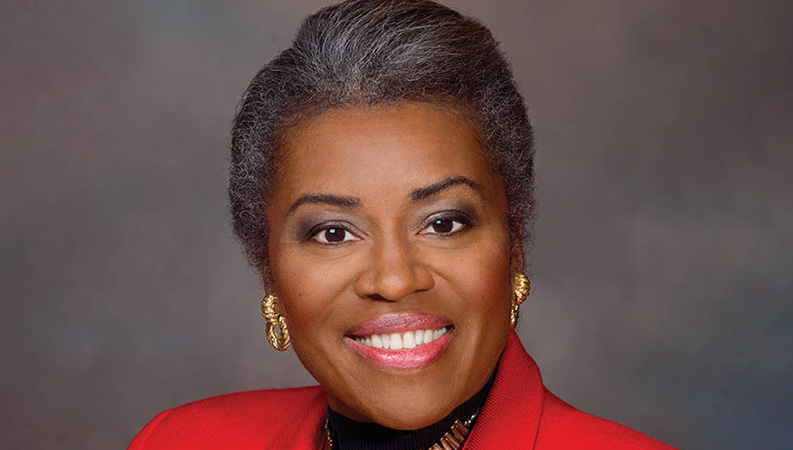Philanthropist, Entrepreneur Bob Parsons Turned the Discipline He Learned in the Marine Corps into High-Tech Success
By Joel Searls
Bob Parsons’ name is synonymous with entrepreneurship, resilience, and the American spirit. Parsons came from very humble beginnings and grew up in Baltimore, Md., fighting for every inch of success he achieved. He founded two successful tech companies, Parsons Technology (sold to Intuit in 1994 for $64 million) and GoDaddy (sold to private equity investors in 2011 for $2.25 billion). In 2012, Parsons started YAM Worldwide Inc., for his entrepreneurial endeavors in power sports, golf, real estate, marketing, innovation, and philanthropy. Parsons’ organizations include Parsons Xtreme Golf (PXG), Harley Davidson of Scottsdale, YAM Properties and, most importantly, The Bob & Renee Parsons Foundation, which has awarded donations to 100 charities and organizations worldwide since 2012.
I recently spoke with Parsons to discuss how his time in the Marine Corps contributed to his later success in life.
How were you inspired to join the Marines? Well, you must understand I was terrible in school. Just terrible. If I were a kid today, I would be pumped so full of Ritalin! My senior year, I discovered the opposite sex and alcohol, which didn’t help my schooling either. I was failing several subjects and I was pretty sure I was not going to graduate.

One day … in the spring of 1968, I had two friends, Aggie Psirocus and Charlie Mason, tell me that we were going to talk to a Marine Corps recruiter and ask if I would like to join them. Aggie had already joined and was helping the recruiter … so Charlie and I went down with him. The recruiter had us at “Hello.” We walked in and he said, “How are you men doing?” This guy looked like Sergeant Rock; everything was starched, and the creases were perfect, and he was in incredible shape. He asked us to wait a moment and went and rattled in his closet a little bit, came out and said, “I was gonna pour you men a drink, but I’m all out.” I think one of us said, “Don’t even worry. We’ll bring it next time.” He said, “Nah, it’s okay. We’ll drink my stuff.” Thinking back on it, I am pretty sure his stuff never existed.
After about an hour, this guy knew he had us and said, “If you want, I’ll see if I can get you in,” and we said, “Absolutely!” He told us there were three reasons we should enlist now. No. 1, Charlie and I could join on the buddy plan and go through training together. No. 2, we didn’t have to leave for Parris Island until August. Somehow or another we thought Parris Island in August would be a good thing. At least we’d have our summer at home in Baltimore. Then, the third reason, which made all the sense in the world to us, was that we didn’t have to worry about getting drafted into the Army. We said, “That sounds good,” and then he said, “We’re going to have to check your grades and so forth,” and my thought was, “Uh oh!”
I was 17 at the time so my mother had to sign my papers. She was a little reluctant, but she finally did. I went back with my papers two weeks later, still worried about the recruiter checking my grades, and he said, “Robert, we think you’ll make a fine Marine.” Our first orders were to report to Fort Holabird for transfer to Parris Island.
When I showed my orders to my teachers, they knew what was happening, they all passed me! In many ways, I owe the Marine Corps my high school diploma. The more I thought about going to boot camp, the more I could not wait to get there, and the same was true for my buddy, Charlie.
When we got down to Parris Island, the DI that got on the bus didn’t exactly say, “How are you men doing?”
Charlie and I were both made riflemen.
What was your experience in Vietnam?
My unit was “Delta” Company, 1st Battalion, 26th Marines and we operated on Hill 190. We were in Quảng Nam Province, where there were rice paddies as far as you could see on one side and mountains and jungle on the other side. Our job was to keep the North Vietnamese Army out of those villages, which we did by running ambushes at night. When I got there, the most senior man in my squad had only been there for six weeks … The squad was ambushed a few days before I got there. Four Marines were KIA [Killed in Action], and one Marine was seriously WIA [Wounded in Action]. I was one of the replacements.
After meeting with my squad, I sat on a wall while I was waiting to go into the bush and thought, “Wow, I’m going to be here for 13 months. The most senior guy here has only been here for six weeks. How in the world am I going to live through this?” Then it occurred to me as I looked out at the valley that I am going to die here. When I accepted that, everything changed for me. Then I made myself two promises. The first promise was I would do everything I could to do my job as a United States Marine. I wanted to make my folks back home proud and not let the guys in my squad down. My second promise was I wanted to do everything I could to be alive for mail call.
Many of my buddies from the war told me they accepted death. They said, “I thought for sure I was going to die.” I believe that made us a much more formidable combat unit. We were worried about one thing and one thing only: doing our job. I hadn’t been with my squad for four hours when I saw my first combat. A fellow Marine was hurt horrifically—his name was Ermel Hunt.
That night our squad was set up in one place and a sister squad was set up in a location a couple clicks apart. We had a corpsman with us, and they did not. We got a radio call from Hill 190 that said, “Get your ass over there as quick as you can with the corpsman.” I remember running through those rice paddies … We get there and their squad leader, Larry Blackwell, was in the rice paddy and he was losing his cookies. He looked like he was in shock and the Huey was going to land right on top of him. When I saw it, I took off and started pushing Larry until we hit a rice paddy dike and went ass over apple cart into the adjacent paddy. The Huey missed us both. At first, he was pissed at me, and then he realized what had happened, so then he thanked me. Did I save his bacon? Oh, for sure.
The second night we were moving out on an ambush, and a Marine named Ray Livsey was walking point. He used to call himself Sgt Rock … walking through a rice paddy is one nasty thing … walking on the rice paddy dikes was so much easier. The problem was that the North Vietnamese knew it was easy. The point man made the decision if he was willing to walk on the dikes or not, and Ray said, “I’m going to walk on the dikes.” It wasn’t five minutes, KABOOM! The explosion mangled his legs. I helped carry him about a mile back to the medevac point.
When we got back to Hill 190 the next morning, I went to clean my rifle. After falling over and over while carrying Ray, my rifle was straight mud from the tip of the barrel to the beginning of the chamber. Had I pulled the trigger, oh my! Thank God that didn’t happen, but I learned you’ve got to keep the barrel up and out of the mud.
I did every job. I walked “tail end Charlie,” which is the safest but also the creepiest job. Then I carried a radio for a while. During Vietnam that was the only communication for the squad, so being the radio man was like wearing a sign that said, “Please shoot me first.” Eventually, I volunteered for the point team, which is how I got hurt.
One month to the day after I arrived, we were going through a village. I’m walking second point; Gene was first point and Gene’s a real high-stepping guy, so he steps over this trip wire and of course, I hit it. When the trap exploded, at first, I didn’t know it was me. As I was laying on the ground, I reached over to stop some of the bleeding on my leg and I realized my elbow joint was outside of my arm … The boys carried me back and then I was medevacked in a jeep. I eventually ended up in Yokosuka Naval Hospital in Japan for the better part of two months. Then I received orders back to the bush.
In the Marine Corps back then, you had to be wounded three times before you could opt out. I don’t know if that’s changed, but it was three times, assuming you were physically able. When I got to Okinawa, they did a full physical since I came from the hospital and saw my elbow still hadn’t healed. So, they put me into a casualty company.
Eventually all my wounds healed, and I told the doctor over at the sick bay I wanted to go back. I said, “Sir, I am all healed and I’m ready to go back.” The doctor said to me, “Parsons, you did what you needed to do. If you want, I’ll keep you here all war, son.” I said to him, “Nah, I want to go back. I want to be with my squad.” Even though it had only been a month; I was closer to them than so many people. He said, “OK.” He put it through and several days later I got notice: “Here’s your orders. You’re going to leave in the morning. And, your payroll records, which had been lost since you were wounded, have finally showed up.” I was given four months’ pay and told to, “Go off base, have yourself a good time, and be back at midnight.”
At 3 in the morning, I was still whooping it up. As I’m walking, the rain is coming down sideways. I see a guy walking towards me. I recognized it was the guy who I saved that first night in the bush, Larry Blackwell. He told me that he was wounded when his squad was ambushed. Because it was his third time wounded, he didn’t have to go back to a rifle company.
It was his third Purple Heart, and he was now stationed in Marine Corps intelligence … He stops, and he says to me, “You know you saved my life,” and I said, “I know.” … He says, “The guy that runs the print shop just left, and we haven’t put someone in that position yet.” He said, “I can get that for you,” and I said, “Really, how?” He goes, “Well, the gunnery sergeant is a friend of mine, and when I tell him that you saved my life and that you’ve already been there and you’ve got a Purple Heart, he’ll probably be OK with assigning you instead of someone just coming through.” I said, “I appreciate that, brother.” My orders were for 7 a.m. and it would be tough for him to make a change. And, in a way, I wanted to go back.
When I arrived back on base, I was immediately arrested for not being back by midnight. I said, “I was wounded, and the Navy lost my payroll records and I’m going back to Vietnam tomorrow.” The second lieutenant said, “Get him the f— out of here,” which was him being nice to me. I went back to the barracks and a couple of hours later woke up with a hangover from hell. Whoever was managing the formation called my name and said, “I’ve got orders that you’re now stationed here on Okinawa.”
Blackwell came to me a couple of months later and said, “Parsons, I came over to say goodbye. I requested a transfer back to a rifle company. I can’t deal with it here.” I said, “Brother, good luck and I’m going to miss you.” A couple of weeks later I also put in my request to go back to my squad in Vietnam. When the request got to the company gunny, [he] looked at it and said, “Parsons, you’re requesting to go back to your unit?” I said, “Yeah,” and he said, “Have you lost your mind? You’ll get yourself killed, son.” He ripped it up and said, “Request denied.” I requested again a few months later and was denied again.
How did your Marine Corps experience factor into your return home from Vietnam?
When I came home from the war, I was a different guy in a lot of ways. First, I worked in a steel mill as a laborer. Then, another job I applied for and got was a machinist apprentice.
Eventually, I saw an ad for the University of Baltimore, [that was] focused on veterans. You didn’t need to take the entrance exams or provide your high school grades. If you had a GED or graduated from high school, that was sufficient. My cousin lent me the money to pay the first advance on my tuition. That’s how I was able to go to college and study accounting. Lo and behold, I graduated Magna Cum Laude. Then I took the CPA exam and passed it the first time. I bought a book later and taught myself how to program a computer and became a hobbyist. I used that book to start my first company, Parsons Technology. I would never have done any of this without the Marine Corps! The Marine Corps totally changed me.
Here’s what they taught me: they taught me the importance of discipline—not discipline in the form of punishment, although there was plenty of that. They taught me that responsibility is sacred. If you have a job to do, you must have the discipline and backbone to see it through. You don’t have to want to do it, but you must do it to the best of your ability to not let the guy next to you down.
In enlisted boot camp, when somebody screws up, the whole platoon gets punished except for the guy that screws up. If someone is caught with pogey bait in the barracks, your brothers in the platoon are going to push all the racks to the middle, and everybody is going to be doing squats as low as they can with their hands behind their head, which is very painful after a while. They go around the barracks repeatedly and the guy with the pogey bait stands there and eats his candy bar and watches them suffer. When everybody passes him, they usually say, “I’m going to f—ing kill you,” but what that drives across is that we operate as a unit. If you don’t operate the way you are supposed to, it hurts the whole unit. The unit is only as strong as the weakest link. That really brought the concept of teamwork home, and teamwork is our calling card.
The other two lessons I learned that helped me a lot were that I could accomplish much more than I ever dreamed I could, and I had a right to be proud. I’ll say it again—everything I have ever accomplished I owe to the United States Marine Corps and the lessons I learned while serving.
How did your Marine Corps experience in Vietnam change and motivate you to start your own company?I came back from Vietnam with a new work ethic, but not all the changes in me were positive. I was a different guy. The guy that went over there was on the happy-go-lucky side, liked being around people, liked going to different events and so forth. The guy who came home had a short temper, was always a little bit depressed, occasionally, when he was alone, he’d cry and didn’t want to be around people. He buried himself in his work and that kept him going.
Sometimes I think, without PTSD, I wouldn’t be as successful as I am. I was a worker bee to get my first business off the ground and wrote all the programming code with no formal education. I would come to work at 8 in the morning, let’s say Monday, straight through to Wednesday at 8 in the morning, and about 8 o’clock at night on Wednesday I’d start to slow down and not get much done. I knew it was time to quit when I would start to hallucinate and hear voices that weren’t there. I worked those crazy hours until I got my business up off the ground, and I did it because I loved it. Then I took it a little easier, but I worked hard every day, again, because I loved it. Would I have done that without the Marine Corps? No … They taught me the importance of hard work. I couldn’t outspend my competitors, I couldn’t out-hire them, but I could outwork them.
My making peace with probable death in Vietnam 100 percent allowed me to focus on what I had to do. I will tell you: I’m no hero. And many Marines saw way more combat than I did. I’m sure camaraderie exists in other branches, but nowhere does it exist like in the Marine Corps. I mean, nobody else celebrates their birthdays. Do you ever hear of the Air Force celebrating birthdays? We have a celebration at my company every year. Anyone that was in the Marine Corps can participate, and I even let a few squids [Navy] into the event. We have a cake, drink a shot, and sing the Marine Corps hymn. Everybody looks forward to it and everybody gets “Semper Fi’d,” and we share a little story here or there. We keep it alive.
Everything we do is a tribute to the Marine Corps. Look at the PXG logo … that’s military stencil. Our clubs, our best irons, the model number is 0311. Another line of our irons is 0317. We have a “Heroes Program,” which verifies service and gives significant discounts to veterans, guys and gals in the military, law enforcement, firefighters, and EMTs. We call them all heroes.
What are you currently focused on and what do you want your legacy to be?
Every year, my wife and I give Semper Fi & America’s Fund $10 million. We also donate money to help prevent suicide. We help Team Rubicon, which give veterans a purpose, something to do … We recently donated $5 million to the Mount Sinai Center for Psychedelic Healing. One million of that went to the Bronx VA, where they are doing field trials with veterans. They understand as much as anybody about PTSD. We helped MAPS (Multi-Disciplinary Association for Psychedelic Studies) with $2 million for their third field trial intended to help with MDMA FDA approval. Right now, our foundation donates an average of a million dollars every 14 days to charity. That’s not bad for a lance corporal.
Author’s bio: Joel Searls is a creative and business professional in the entertainment industry. He writes for We are the Mighty. He serves in the Marine Corps Reserve and enjoys time with his family and friends.





